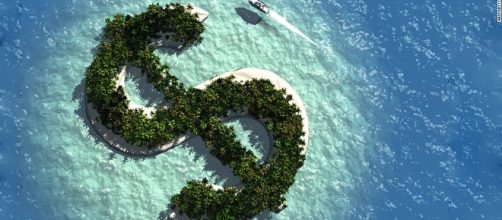A tax haven country offers individuals from foreign nations amnesty from paying taxes on their bank deposits and serves as a sanctuary against revenue authorities. The tax haven practice was started in ancient Greece by sea traders who wanted to avoid paying taxes to the city-state of Athens. U.S companies such as Apple, Alphabet, and Microsoft are accused of minimizing their corporate tax obligations by stashing their cash in havens. A tax exile is a person who decides to reside permanently in another country so as to minimize his or her tax payments.
Some United States citizens have avoided paying high taxes to the United States government by renouncing their U.S citizenship or by moving abroad. Since $21 trillion to $32 trillion is believed to be held in haven countries, $190 trillion to $255 trillion in government revenue is lost as a result. Most haven countries are island countries. Examples of haven countries include Andorra, the Bahamas, Belize, the Channel Islands, Hong Kong, the Cook Islands, The Isle of Man, Mauritius, Jersey, Lichtenstein, Bermuda, the British Virgin Islands, the Cayman Islands, Switzerland, Monaco, Panama, and St. Kitts and Nevis. Former haven countries included Liberia, Morocco, Cyprus, Vanuatu, and Lebanon.
Money in tax havens
Tax haven countries have in the past been accused of helping Corrupt Leaders and business people hide their illegally acquired cash; pyramid scheme managers are also believed to have hidden their money in haven countries while wealthy people in business have used havens to hide their cash from revenue authorities. The New York Times once published that the Cayman Island has $1.9 trillion in deposits. Haven countries are believed to possess only 1.2% of the world's population, yet, they hold 26% of the world's wealth. 31% of this money is believed to be net profit from United States multinationals. Some bank deposits in Switzerland are considered to be owned by foreigners. An IMF report also stated that $500 billion in drug money is laundered in havens every year.
Panama papers
The Panama Papers were a list of 11.5 million documents that contained information about foreign citizens who had shell businesses in Panama. The shell companies were believed to be used by citizens of different countries to commit fraud, evade international sanctions and taxes. Mossack Fonseca & Co, a law firm and corporate service provider in Panama, was accused of offering U.S clients guidance on how they can evade financial disclosure laws and US taxes.
The U.S foreign account tax compliance act
The U.S, foreign account tax compliance act of 2010 which was backed by the Obama administration, requires foreign financial institutions such as stock brokers, banks, pension funds, insurance companies and trusts to report to the I.R.S their clients with U.S citizenship. The act was aimed at stopping the flow of money to havens. The law came into effect in January 2014.


